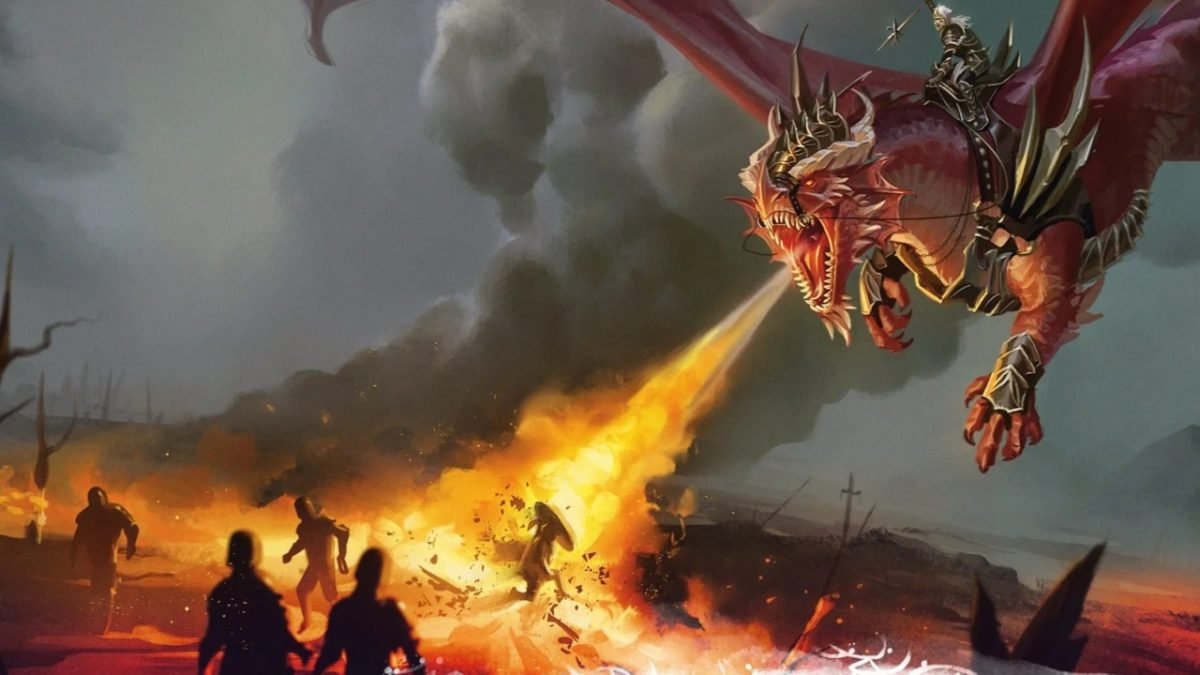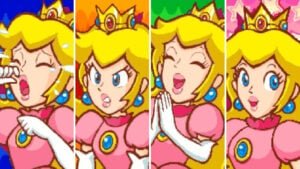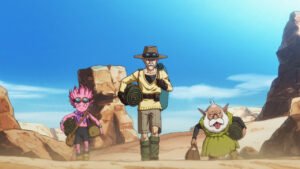Wizards of the Coast finally responded to their leaked plans for Dungeons & Dragons‘ Open Gaming License, and whiffed their Persuasion check.
2023 has not started well for Dungeons & Dragons publisher Wizards of the Coast. In December, as part of the ongoing shift toward the One D&D format, they announced plans to update the game’s Open Game License—in short, a document that allows third-parties to make material that would be compatible with Dungeons & Dragons, or based upon its foundations.
At the time, Wizards of the Coast claimed, “The OGL needs an update to ensure that it keeps doing what it was intended to do—allow the D&D community’s independent creators to build and play and grow the game we all love—without allowing things like third-parties to mint D&D NFTs and large businesses to exploit our intellectual property.”
Nonetheless, given that the game is the cornerstone for an entire sub-industry of content creators who have built careers and incomes by selling handmade goods and custom content or producing actual-play podcasts and live streams, there was understandable concern throughout the community. Unfortunately, that concern proved warranted when the new OGL v1.1 was leaked in a virtually final state early last week.
Wizards of the Coast has finally issued a statement on the matter, and their stance is, unfortunately tone-deaf. Let’s take a step back and look at the issues at play to appreciate why their message is unconvincing.
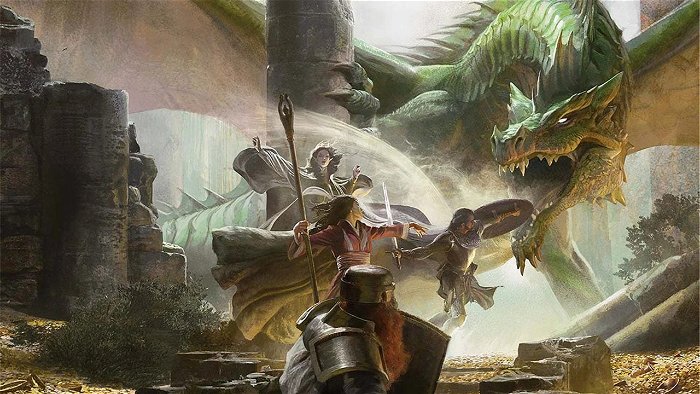
The Planned Changes for OGL v1.1
io9’s Linda Codega received a full version of the proposed document, and as they reported on January 5, its implications were grim. OGL v1.1 would deauthorize the existing OGL v1.0a and thereby force licensed partner companies like Paizo and Kobold Press “to completely overhaul their products and distribution in order to comply with the updated rules” within an unrealistic time frame.
The leaked document illustrates the intent behind this move with extreme pettiness, claiming the OGL “wasn’t intended to subsidize major competitors, especially now that PDF is by far the most common form of distribution. [The OGL] wasn’t intended to fund major competitors, and it wasn’t intended to allow people to make D&D apps, videos, or anything other than printed (or printable) materials for use while gaming. We are updating the OGL in part to make that very clear.”
The proposed OGL v1.1, Cordega reports, drew clear lines in the sand for the kind of content that could be licensed, “only [allowing] for creation of roleplaying games and supplements in printed media and static electronic file formats.” Other content would be allowed under the Wizards of the Coast Fan Content Policy or negotiated with the company, including “videos, virtual tabletops or VTT campaigns, computer games, novels, apps, [and] graphic novels”—an unsubtle way of barring competition to their upcoming virtual tabletop in the One D&D initiative.
More insidiously, Wizards of the Coast would stand to claim a considerable chunk of third-party creators’ revenue in this new paradigm. Creators would still be able to receive “tips” for free products, but those who make revenue from their work would be sorted into three tiers: the Initiate Tier, for those earning less than $50k from licensed works in a year; the Intermediate Tier, for those earning $50-750k; and those earning more than $750k would fall into the thin ranks of the Expert Tier.
For the “less than twenty” partners that would qualify for the Expert Tier, Wizards of the Coast deemed themselves worthy of a 20-25% cut of that revenue above $750k. Kickstarter was offered as their “preferred crowdfunding platform,” and they would only help themselves to 20% of the Qualifying Revenue from such campaigns. However, given how little profit creators typically make from Kickstarter, this would see many creators giving all their actual proceeds back to the corporation.
Even worse, Wizards of the Coast claimed “a ‘nonexclusive, perpetual, irrevocable, worldwide, sub-licensable, royalty-free license to use that content for any purpose.'” Not only would they stand to profit from licensed works, but would retain the rights to use those works for their own ends.
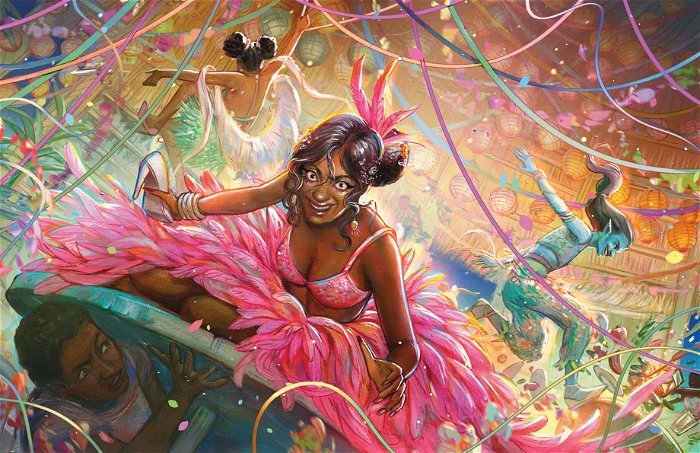
The Backlash and The Damage Done
The roleplaying community on social media was already concerned, but concern became outrage when the contents of the leaked document dropped on January 5. Some, like official Paizo partner Roll For Combat, pointed out the potential implications if Wizards of the Coast invalidated the existing OGL—given that games like Star Wars: Knights of the Old Republic and World of Warhammer Roleplaying Game were published under its umbrella. If parent company Hasbro revoked the OGL and deemed themselves privy to revenue from such successful properties, it would not sit well with Disney or Activision Blizzard/Microsoft.
Many creators immediately found their income stability threatened during the long wait for a response from Wizards of the Coast. Five days after the leaks were made public, tabletop RPG illustrator Brian Patterson, creator of the webcomics d20Monkey and the Innsmouth Garden Society, said: “I’ve already had 3 projects cancelled that I signed on for due to the OGL uncertainty, and I know others in the same situation. This WILL hurt freelancers before it hurts large companies and while the market will stabilize eventually, a lot of us are going to struggle.”
A day later, Patterson updated: “all of my scheduled freelance projects are cancelled or on ‘indefinite hiatus’ due to this OGL calamity.” His experience was far from an outlier, with countless other independent creators sharing similar circumstances, or outright pulling their support from Dungeons & Dragons-associated products.
As the radio silence continued, Wizards of the Coast’s licensed partners mobilized. Paizo Inc., noting that many of its members were present for the creation of the original OGL, declared they “do not believe that the OGL 1.0a can be ‘deauthorized,’ ever. While we are prepared to argue that point in a court of law if need be, we don’t want to have to do that, and we know that many of our fellow publishers are not in a position to do so.”
Instead, Paizo announced a new initiative that “will irrevocably and unquestionably keep alive the spirit of the Open Game License”—a system-neutral “open, perpetual, and irrevocable Open RPG Creative License (ORC).” Fellow partners like Kobold Press and Chaosium have thrown their lot in with the project, which would be overseen by law firm Azora Law, which represents many similar publishers.
Wizards of the Coast’s Response
And now we arrive back at the present day, when Wizards of the Coast finally broke their silence on the matter via the D&D Beyond blog. (As Codega reported, today would have been the deadline for partners to sign the updated document, a week after they would have received it.)
Their statement reiterates their main goals—preventing game content from being used in “hateful and discriminatory products” or blockchain/NFT products, and disallowing “major corporations to use [Dungeons & Dragons] for their own commercial and promotional purpose.” To this end, they were guided by two principles: “to be good stewards of [Dungeons & Dragons]” and that “the OGL exists for the benefit of the fans.”
“It was never our intent to impact the vast majority of the community,” the statement reads. “However, it’s clear from the reaction that we rolled a 1. It has become clear that it is no longer possible to fully achieve all three goals while still staying true to our principles.”
The new OGL, the statement promises, will not affect existing content published under OGL v1.0a. It will not include the royalty structure, and will clarify that the creators own the content, not Wizards of the Coast or its parent company, Hasbro. It will address the risk that creators may “incorrectly allege that we steal their work simply because of coincidental similarities,” but “without suggesting we have rights to the content you create.”
The placation ends on a strangely antagonistic attempt to control the narrative:
“You’re going to hear people say that they won, and we lost because making your voices heard forced us to change our plans. Those people will only be half right. They won—and so did we.
Our plan was always to solicit the input of our community before any update to the OGL; the drafts you’ve seen were attempting to do just that. We want to always delight fans and create experiences together that everyone loves. We realize we did not do that this time and we are sorry for that. Our goal was to get exactly the type of feedback on which provisions worked and which did not–which we ultimately got from you.”
While this is a nice sentiment, the leaked document was originally planned to be published on January 4, giving partners until January 13 to agree to the new OGL. The plan shifted, perhaps because of the leak that led to Codega’s story on January 5, but it’s clear that the community would not have been directly consulted prior to the proposed OGL v1.1’s publication. This response thanks fans for giving feedback but ignores that they were not intended to be given the opportunity to do so in the first place.
The Damage Done, and Where We Go From Here
Up to this point, I’ve felt that Wizards of the Coast has been doing a great job with Dungeons & Dragons Fifth Edition; their recent publications have been great, and I believed One D&D could be a positive step forward for the game at large.
And to be fair, they should want to protect their game from being exploited for blockchain and NFT scams, or to have bigoted material published under the game’s banner. Dungeons & Dragons‘ team has been making an honest and concerted (but not perfect) effort to better represent gender and race issues in-game, and such damaging content has no place in this (or any) industry.
Perhaps one might even understand the company’s frustration when seeing others use their game as a foundation to make other work. However, in the past Wizards of the Coast has used this to their advantage—hiring third-party creators to work on their products, such as Journey to the Radiant Citadel, or partnering with popular media enterprises like Critical Role and Penny Arcade to make official 5E products set in their toyboxes. Competition and experimentation feed back into Dungeons & Dragons in meaningful ways.
However, abolishing OGL v1.0a was a bad look when paired with an overreaching attempt to claim revenue from creators. Fans have feared the worst since Hasbro CEO Chris Cocks and Wizards of the Coast CEO and president Cynthia Williams commented, at an investor meeting last month, that “the [D&D] brand is really under monetised.” Reaching into the cookie jars of smaller, independent creators is never a good look for a major corporation like Hasbro, and it was a realization of many players’ biggest fears.
Worst of all, the proposed move betrayed Wizards of the Coast’s relationship with the cottage industry that supports it. For years Dungeons & Dragons has been the cornerstone of the tabletop RPG field, the foundation that other games are judged against, and a common ground for many players to share their experiences. There are countless creators making a hobby, or some spare change, or even a primary income from producing associated products that embrace players’ love for the genre. This incident made them question the stability of their work.
By letting the community fester for over a week, Wizards of the Coast has made people look to a future without Dungeons & Dragons, or at least reiterated that their game isn’t the only show in town. They’ve burned bridges with partners who are now joining forces on a new alternative that holds closer to the OGL’s original spirit.
Can Wizards of the Coast recover from this fiasco? Certainly, if the OGL is handled properly and the content remains worthwhile. But the community and the industry will remember. Dungeons & Dragons has long benefitted from its legacy as the trailblazer that originally drove the medium, but this month we’ve seen that its armour is not impenetrable.
